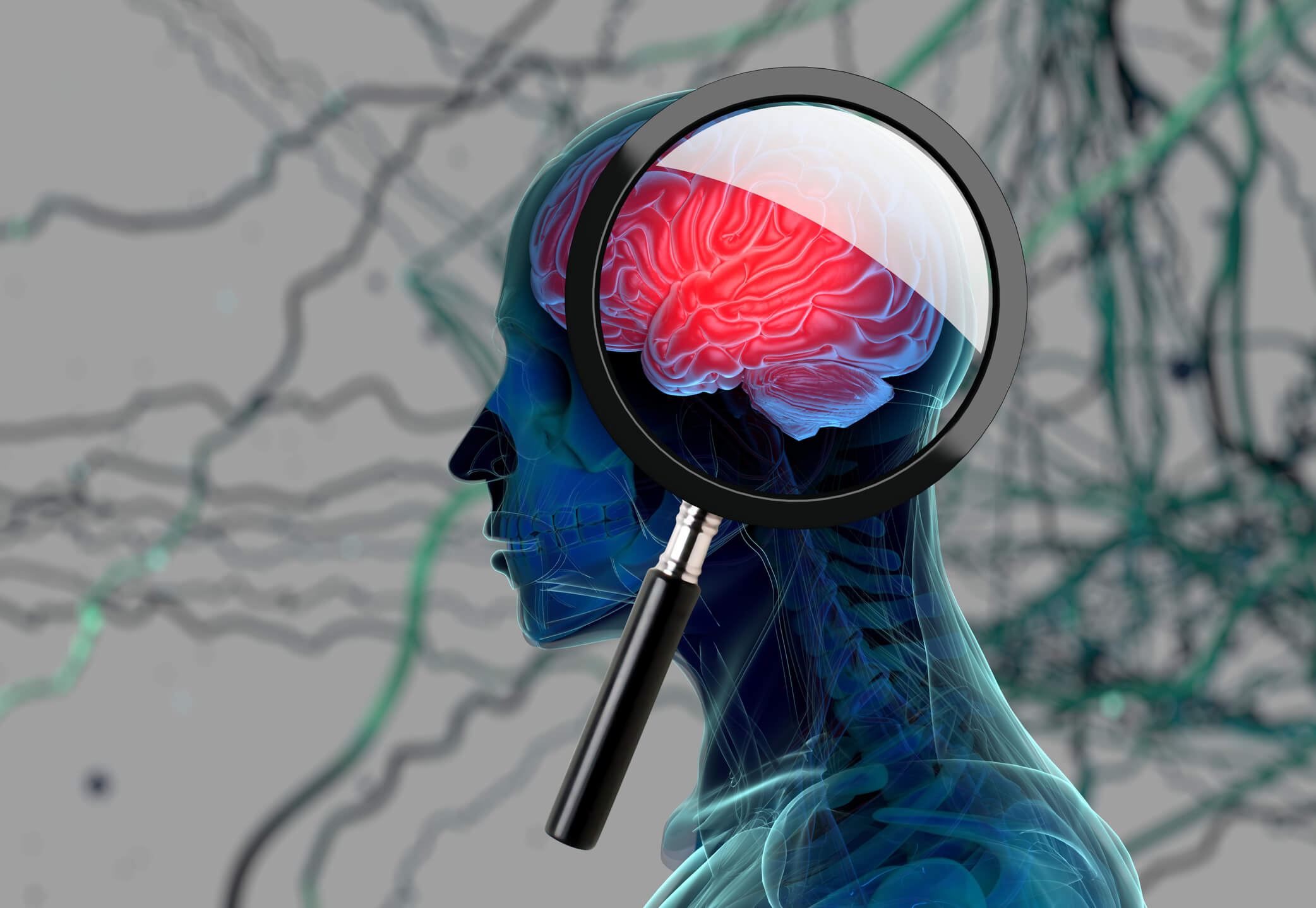Your blood-brain barrier (BBB) is a layer of very selective cells that allows certain molecules and nutrients from your blood to reach the brain. When the BBB is leaky, it can allow inflammatory proteins and harmful substances to pass through. As a result, a leaky brain may contribute to neurodegeneration and neuroinflammation, causing brain fog, low mood, and more.
Therefore, if your goal is to perform at your best cognitively, you want to optimize your BBB health. To learn more about the BBB and factors that can compromise it, check out part 1 of this article.
In this article, part 2, we’ll cover how to measure your blood-brain barrier, along with ways to repair it.
How To Measure Barrier Permeability
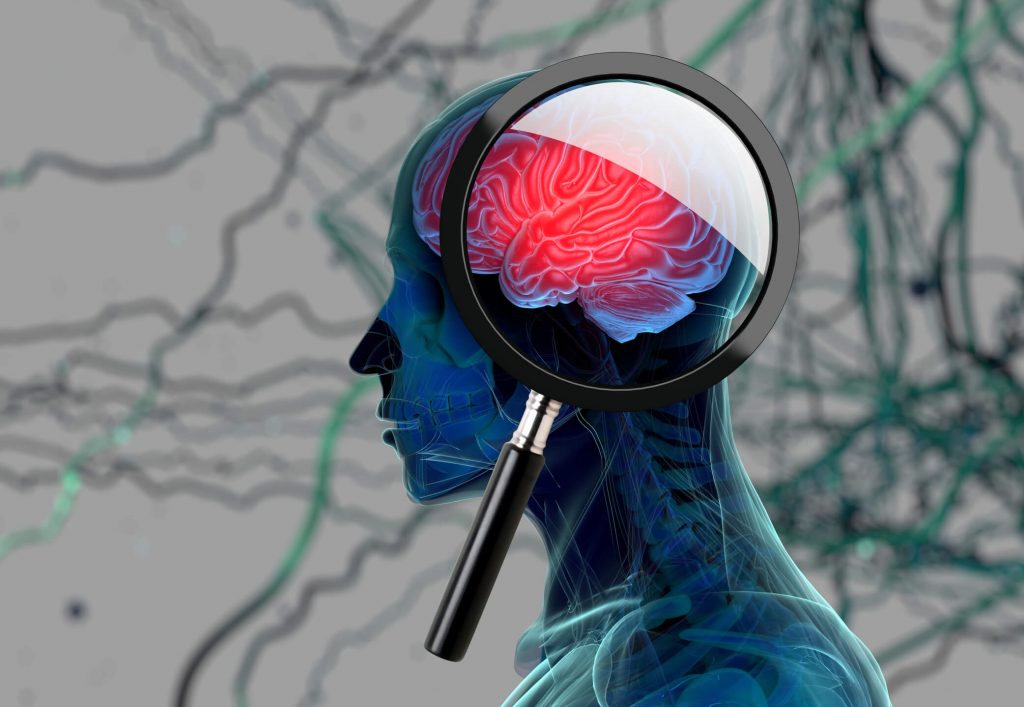
Aside from symptoms of a leaky BBB, many biohackers are interested in testing or quantifying numbers that matter. The following tests allow you to screen for a leaky BBB or to determine the overall risk of increased BBB permeability:
1. Matrix metallopeptidase 9 (MMP9) levels– The enzyme MMP9 degrades the protective barrier. An MMP9 blood test can help determine the health of your BBB.
2. Homocysteine levels– High levels of this toxin can increase BBB permeability. Therefore, homocysteine levels may reflect the integrity of your BBB.
3. Spectroscopy– Evan’s blue dye can bind a protein (albumin) that won’t cross the BBB under healthy conditions but can cross a compromised BBB. The amount of dye that crosses your BBB can determine the level of permeability. However, since this method is somewhat invasive, you may only see it in research settings.
How To Repair A Leaky BBB Naturally: Lifestyle Changes, Food, And Supplements
Repairing the BBB involves both dietary and lifestyle changes that support and improve brain health. To maximize nutrient transport into the brain and restore your BBB integrity, consider some of the following supplements and steps:
Heal Your Leaky Gut
A leaky gut may very well lead to a leaky brain. Both your brain and intestinal barrier rely on tight junctions that provide the seal between cells. A leaky gut is similar to a leaky brain, where this seal is loosened. Intestinal permeability exposes the gut content, such as partially digested foods and bacteria parts, to the immune system. This can lead to chronic inflammation that opens up the BBB.
Gluten is a common cause of both leaky gut and leaky brain as it can open up tight junctions by increasing a protein called zonulin, even in non-celiacs. Zonulin regulates both intestinal and BBB permeability partly by controlling the tight junctions. Increased zonulin levels are correlated with increased BBB degradation.
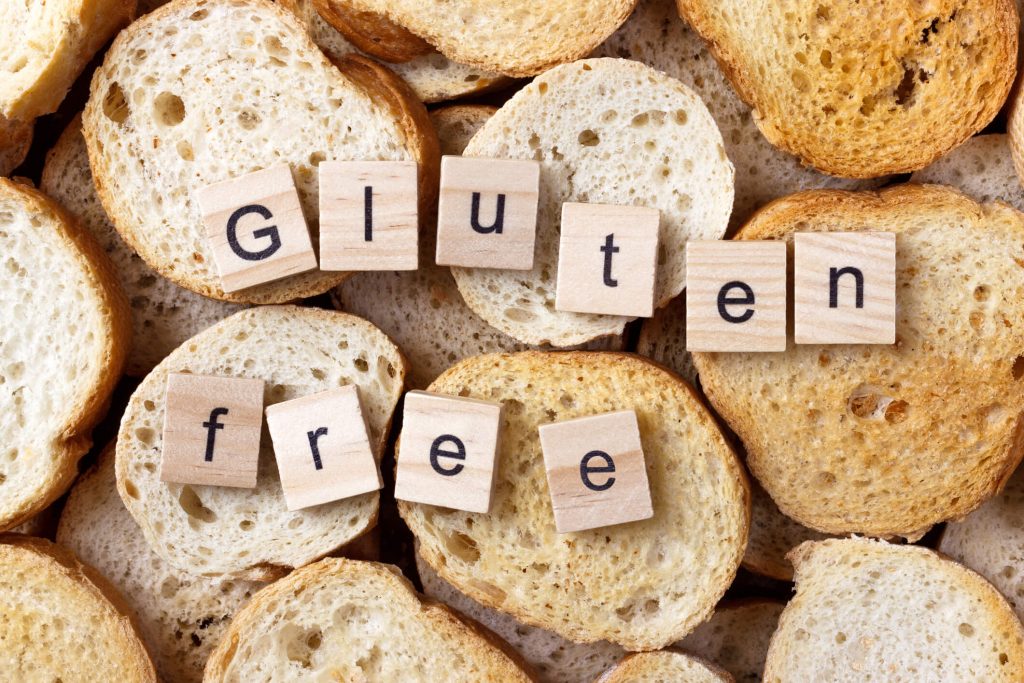
To maintain a healthy gut barrier, you want to keep your gut healthy and support your gut flora. Gut flora growth and diversity is key for brain health and BBB integrity.
In mice, the lack of gut bacteria correlates with increased BBB permeability. Introducing bacteria or beneficial bacterial metabolites such as butyrate reduces their BBB permeability, supporting the link between a healthy gut and healthy brain. To support a healthy gut flora, consider supplementing with a probiotic/prebiotic duo like this one.
Work with a naturopathic or functional medicine doctor to address your compromised intestinal barrier. To learn more about leaky gut and how to fix it, check out this leaky gut article.
Avoid Alcohol, Or Have It Sparingly
Alcohol is generally bad for the brain as it’s a neurotoxin. Upon alcohol exposure, highly active enzymes involved in the metabolism process are found at the BBB. Alcohol metabolism also produces substances that can cause damage to the barrier. This damage activates MMP9, further injuring the BBB.
The human brain depends on glucose as an energy source and healthy brain function. Alcohol intake reduces glucose transport across the barrier and into the brain, affecting neuronal health.
Alcohol consumption can also cause vitamin deficiencies, possibly due to reasons like impaired absorption in the intestinal tract. It is linked to a vitamin B1 deficiency, which can cause barrier dysfunction.
For optimal BBB health, limit your consumption of alcohol and opt for a non-alcoholic drink instead.
Manage Any Stress In Your Life
Stress can affect BBB permeability in mood-controlling brain regions in mice, and subsequently alter their behavior. Chronic social stress can alter barrier formation by reducing structural proteins that make up the BBB.
Stress can also cause brain inflammation, partly by opening the BBB and allowing the inflammatory molecules through.
There are some general steps everyone can take to ease stress and maintain their brain health. You can find great tips to manage stress here.
Reduce Mold Exposure In Your Environment

Mold exposure is a serious problem for many people, especially with chronic exposure (unknowingly) to mold in homes or workspaces. Mycotoxins (produced by mold or fungi) are sometimes present in food sources such as tea and nuts.
Mold can release mycotoxins into the air, which may affect your brain and cognitive function. This is possible because mycotoxins can compromise the mitochondria (cell energy generators) and disrupt barrier function. Mycotoxins also disrupt BBB integrity and cause cell toxicity.
If you suspect that mold toxins could be interfering with your brain function, consider getting a professional inspection for your home or location that you’re exposed to. Also, see a naturopathic doctor to test and detox from mold.
Improve Your Sleep Time And Quality
Circadian rhythms and sleep regulate BBB permeability. So, sleep deprivation and poor sleep quality may affect your BBB health.
In mice, six days of sleep restriction impaired their REM sleep (high energy dream-state) and BBB function. The researchers measured the animal’s BBB permeability with a fluorescent tracer. Once the mice got some adequate rest, their healthy BBB function came back. A similar study confirmed this sleep recovery result and that REM sleep is important for BBB structure and function.
Sleep loss can also cause inflammation, which disrupts the BBB. Therefore, you want to get adequate high-quality sleep every night for a healthy blood-brain barrier.
Have More Magnesium
High magnesium intake can reduce BBB permeability and help regulate BBB function. Magnesium protects the BBB in many animal models of brain conditions and injuries, suggesting that it may also support human BBB during day-to-day insults and stress.
Magnesium also plays an important role in neurological health, and it actively crosses into the brain via the BBB.
To increase your intake of magnesium, natural foods are a quick way to do so. Check out this article for a list of magnesium-rich foods. Also, consider supplementing with Magnesium Breakthrough to ensure healthy magnesium levels in your body.
Add Some Berberine
Berberine is a bitter chemical found in plants such as Oregon grape and goldenseal. It can easily cross into the brain via the BBB, and is neuroprotective. Berberine can protect BBB structure by increasing claudin-5, a protein involved in BBB permeability.
Increase Your Daily Amount Of B Vitamins
High levels of the toxic amino acid homocysteine compromises the BBB. High homocysteine is linked to B vitamin deficiencies, as these vitamins are required to break it down. Vitamins B6, B9, and B12 are the most essential to decrease homocysteine, although other B vitamins are indirectly involved in homocysteine metabolism.
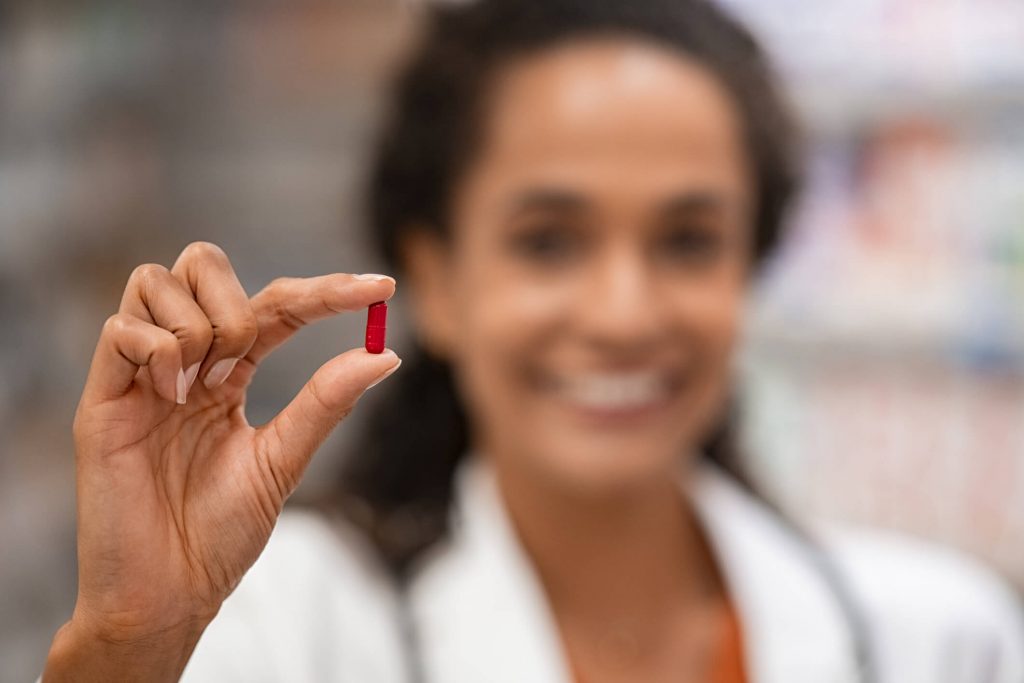
Researchers evaluated the effect of a high-dose combination supplement of B6-B9-B12 in 30 participants with high homocysteine levels. Along with homocysteine they measured albumin levels following treatment, as this protein does not cross the BBB under healthy conditions. Both homocysteine and albumin levels decreased following supplementation, suggesting that the B vitamins may restore BBB integrity.
B vitamins are essential to healthy brain function, and they all work together. This is one of the reasons Nootopia products include B complex. Speak to your doctor if you wish to check your homocysteine and levels of your vitamins B9 and B19.
You can supplement with vitamin B complex if you are looking to increase your intake. Liver, fish, poultry, and leafy greens are also all great sources of this vitamin, which can help you maintain the health and function of your BBB.
Supplement With Acetyl-L-carnitine (ALCAR)
ALCAR is a form of carnitine that our body naturally produces and can easily cross the BBB. It is neuroprotective, and several animal studies show that ALCAR can:
- Improve brain metabolic function and memory during aging
- Reduce the production of BBB-damaging substances
- Improve cellular energy by restoring the activity of mitochondria (powerhouse for cells); healthy mitochondria function is related to a healthy BBB
- Protect the BBB during alcohol consumption
ALCAR is available as a dietary supplement; consider adding this to your health regimen.
Look For Foods With Curcumin
This chemical gives turmeric its bright yellow color and has many anti-inflammatory properties. Curcumin protects the BBB in animal models. It also increases neurological function and decreases barrier permeability in mice.
If you are looking for a great natural source, then curry dishes will help you increase your uptake of this potent neuroprotectant.
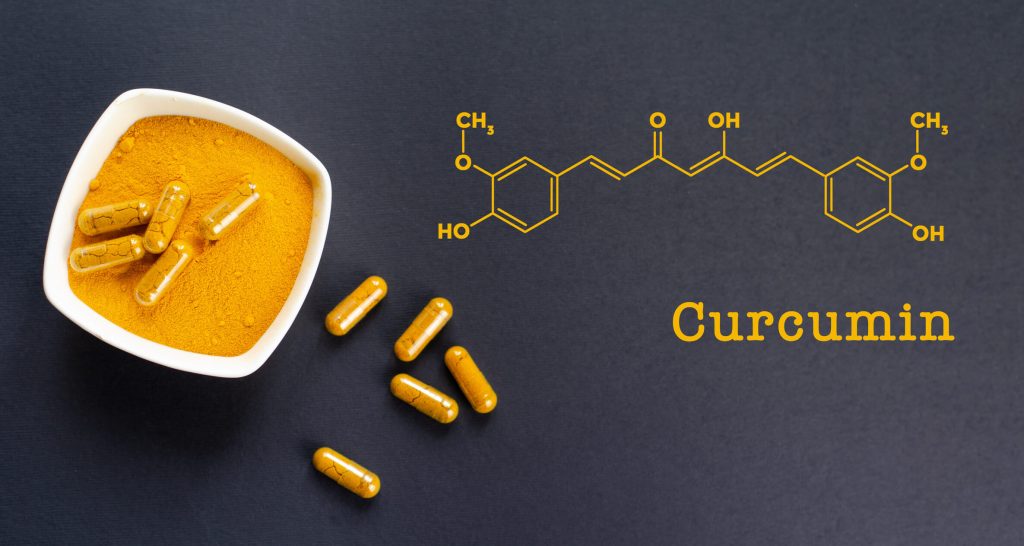
Safely Increase Your Daily Caffeine Intake
Caffeine is a great nootropic that also supports the integrity of the BBB. Caffeine protects the BBB during neurodegeneration, which is common with an aging brain.
The easiest way to have caffeine is in your morning cup of coffee or some green tea.
Eat More Antioxidants (Resveratrol)
Resveratrol is an antioxidant found in fruits such as grapes (in the skin), blueberries, and cranberries. It has many beneficial properties, including protective activity against inflammation and neurodegeneration. Resveratrol can help maintain the health of your central nervous system during aging.
Resveratrol protects BBB structure in mice. It preserves the proteins that form structures of the BBB, and also counteracts brain inflammation .
To incorporate resveratrol into your diet, consider eating some peanuts or enjoy a glass of red wine., sparingly of course. You can also take resveratrol supplements.
Ensure Healthy Vitamin D Levels
Vitamin D prevents BBB damage by inhibiting the formation of cell damaging substances. In rats, administering vitamin D through the nose can stop BBB disruption by increasing neuroprotective proteins. As a result, nasal supplementation decreases blue dye leakage into the brain of these rats.
Vitamin D is also important in neurological health and development, and reaches several regions of the brain.
The easiest way to increase your vitamin D levels is through sun exposure, so make sure to spend a little extra time outdoors for optimal BBB health. Also taking vitamin D supplements is a great way to increase your vitamin D levels. This is also why we include vitamin D in Nootopia’s Mental Reboot.
Omega-3’s Are Vital
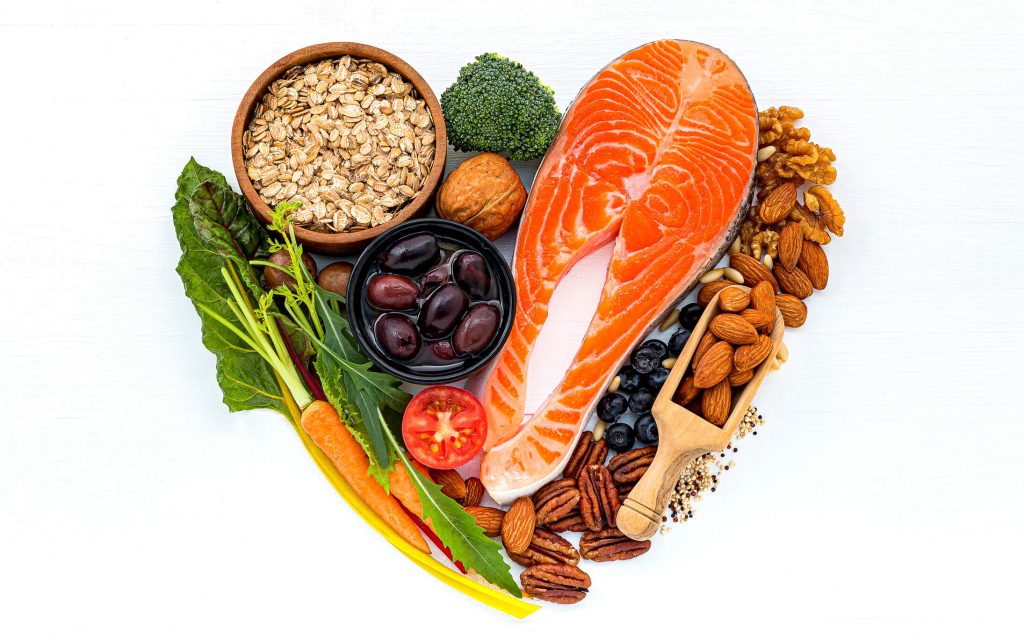
Fish oil supplementation reduces gene expression of MMP9, preventing this destructive protein from compromising BBB integrity. DHA, a type of omega-3 present in fish oil, protects the BBB. This is also why DHA is a core part of many of our products.
Omega-3 fatty acids also have many benefits for brain health and development, and can actively cross the BBB.
In a study of 45 healthy elderly individuals, researchers assessed their cognitive abilities alongside omega-3 intake. They looked at omega-3 levels in the participants’ blood drops. 89% of participants also received an MRI to view BBB structure. While there was no major connection between omega-3 scores and cognition, low omega-3 levels correlated with increased BBB permeability. Therefore, omega-3 fatty acid supplementation may help maintain BBB structure in a healthy elderly population.
Wild-caught fish such as sardines are a great source of omega-3, as well as seafood.
Find More Ways To Increase Your Glutathione Levels
This potent antioxidant maintains brain cell and neuron function. During aging, glutathione may protect against neuron damage and neurodegeneration.
Glutathione protects against the production of destructive substances in the brain which damage the BBB. High glutathione levels in astrocytes (cells involved in BBB formation) help maintain barrier integrity.
N-acetylcysteine, or NAC, is a great supplement to take to increase your glutathione levels. NAC can increase glutathione levels in the blood and brain. We include NAC in Nootopia’s Mental Reboot.
Conclusion
Maintaining the health of your brain and your BBB will help you in achieving optimal health and longevity. Nourish your body with certain vitamins, minerals, and supplements to help keep your BBB from leaking and compromising your brain health.
References:
- Daneman R, Prat A. The blood-brain barrier. Cold Spring Harb Perspect Biol. 2015;7(1):a020412. doi:10.1101/cshperspect.a020412
- Obermeier B, Daneman R, Ransohoff RM. Development, maintenance and disruption of the blood-brain barrier. Nat Med. 2013;19(12):1584-1596. doi:10.1038/nm.3407
- Rempe RG, Hartz AMS, Bauer B. Matrix metalloproteinases in the brain and blood-brain barrier: Versatile breakers and makers. J Cereb Blood Flow Metab. 2016;36(9):1481-1507. doi:10.1177/0271678X16655551
- Beard RS Jr, Reynolds JJ, Bearden SE. Hyperhomocysteinemia increases permeability of the blood-brain barrier by NMDA receptor-dependent regulation of adherens and tight junctions. Blood. 2011;118(7):2007-2014. doi:10.1182/blood-2011-02-338269
- Saunders NR, Dziegielewska KM, Møllgård K, Habgood MD. Markers for blood-brain barrier integrity: how appropriate is Evans blue in the twenty-first century and what are the alternatives? Front Neurosci. 2015;9:385. doi:10.3389/fnins.2015.00385
- Rutsch A, Kantsjö JB, Ronchi F. The gut-brain axis: How Microbiota and host inflammasome influence brain physiology and pathology. Front Immunol. 2020;11:604179. doi:10.3389/fimmu.2020.604179
- Obrenovich MEM. Leaky gut, leaky brain? Microorganisms. 2018;6(4):107. doi:10.3390/microorganisms6040107
- Fasano A. All disease begins in the (leaky) gut: role of zonulin-mediated gut permeability in the pathogenesis of some chronic inflammatory diseases. F1000Res. 2020;9:69. doi:10.12688/f1000research.20510.1
- Fasano A. Zonulin and its regulation of intestinal barrier function: the biological door to inflammation, autoimmunity, and cancer. Physiol Rev. 2011;91(1):151-175. doi:10.1152/physrev.00003.2008
- Skardelly M, Armbruster FP, Meixensberger J, Hilbig H. Expression of zonulin, c-kit, and glial fibrillary acidic protein in human gliomas. Transl Oncol. 2009;2(3):117-120. doi:10.1593/tlo.09115
- Braniste V, Al-Asmakh M, Kowal C, et al. The gut microbiota influences blood-brain barrier permeability in mice. Sci Transl Med. 2014;6(263):263ra158. doi:10.1126/scitranslmed.3009759
- Liu H, Wang J, He T, et al. Butyrate: A double-edged sword for health? Adv Nutr. 2018;9(1):21-29. doi:10.1093/advances/nmx009
- Haorah J, Knipe B, Leibhart J, Ghorpade A, Persidsky Y. Alcohol-induced oxidative stress in brain endothelial cells causes blood-brain barrier dysfunction. J Leukoc Biol. 2005;78(6):1223-1232. doi:10.1189/jlb.0605340
- Haorah J, Ramirez SH, Schall K, Smith D, Pandya R, Persidsky Y. Oxidative stress activates protein tyrosine kinase and matrix metalloproteinases leading to blood-brain barrier dysfunction. J Neurochem. 2007;101(2):566-576. doi:10.1111/j.1471-4159.2006.04393.x
- Mergenthaler P, Lindauer U, Dienel GA, Meisel A. Sugar for the brain: the role of glucose in physiological and pathological brain function. Trends Neurosci. 2013;36(10):587-597. doi:10.1016/j.tins.2013.07.001
- Abdul Muneer PM, Alikunju S, Szlachetka AM, Haorah J. Inhibitory effects of alcohol on glucose transport across the blood-brain barrier leads to neurodegeneration: preventive role of acetyl-L: -carnitine. Psychopharmacology (Berl). 2011;214(3):707-718. doi:10.1007/s00213-010-2076-4
- Abdul Muneer PM, Alikunju S, Szlachetka AM, Mercer AJ, Haorah J. Ethanol impairs glucose uptake by human astrocytes and neurons: protective effects of acetyl-L-carnitine. Int J Physiol Pathophysiol Pharmacol. 2011;3(1):48-56.
- Chopra K, Tiwari V. Alcoholic neuropathy: possible mechanisms and future treatment possibilities: Clinical management of alcoholic neuropathy. Br J Clin Pharmacol. 2012;73(3):348-362. doi:10.1111/j.1365-2125.2011.04111.x
- de la Monte SM, Kril JJ. Human alcohol-related neuropathology. Acta Neuropathol. 2014;127(1):71-90. doi:10.1007/s00401-013-1233-3
- He X, Sullivan EV, Stankovic RK, Harper CG, Pfefferbaum A. Interaction of thiamine deficiency and voluntary alcohol consumption disrupts rat corpus callosum ultrastructure. Neuropsychopharmacology. 2007;32(10):2207-2216. doi:10.1038/sj.npp.1301332
- Vetreno RP, Hall JM, Savage LM. Alcohol-related amnesia and dementia: animal models have revealed the contributions of different etiological factors on neuropathology, neurochemical dysfunction and cognitive impairment. Neurobiol Learn Mem. 2011;96(4):596-608. doi:10.1016/j.nlm.2011.01.003
- Calingasan NY, Baker H, Sheu KF, Gibson GE. Blood-brain barrier abnormalities in vulnerable brain regions during thiamine deficiency. Exp Neurol. 1995;134(1):64-72. doi:10.1006/exnr.1995.1037
- Listabarth S, König D, Vyssoki B, Hametner S. Does thiamine protect the brain from iron overload and alcohol-related dementia? Alzheimers Dement. 2020;16(11):1591-1595. doi:10.1002/alz.12146
- Dion-Albert L, Cadoret A, Doney E, et al. Vascular and blood-brain barrier-related changes underlie stress responses and resilience in female mice and depression in human tissue. Nat Commun. 2022;13(1):164. doi:10.1038/s41467-021-27604-x
- Menard C, Pfau ML, Hodes GE, et al. Social stress induces neurovascular pathology promoting depression. Nat Neurosci. 2017;20(12):1752-1760. doi:10.1038/s41593-017-0010-3
- García-Bueno B, Caso JR, Leza JC. Stress as a neuroinflammatory condition in brain: damaging and protective mechanisms. Neurosci Biobehav Rev. 2008;32(6):1136-1151. doi:10.1016/j.neubiorev.2008.04.001
- Sedova I, Kiseleva M, Tutelyan V. Mycotoxins in tea: Occurrence, methods of determination and risk evaluation. Toxins (Basel). 2018;10(11):444. doi:10.3390/toxins10110444
- Brar PK, Danyluk. Nuts and grains: Microbiology and preharvest contamination risks. In: Preharvest Food Safety. Vol 6. American Society of Microbiology; 2018:105-121.
- Alonso-Garrido M, Frangiamone M, Font G, Cimbalo A, Manyes L. In vitro blood brain barrier exposure to mycotoxins and carotenoids pumpkin extract alters mitochondrial gene expression and oxidative stress. Food Chem Toxicol. 2021;153(112261):112261. doi:10.1016/j.fct.2021.112261
- Behrens M, Hüwel S, Galla HJ, Humpf HU. Blood-brain barrier effects of the Fusarium mycotoxins deoxynivalenol, 3 acetyldeoxynivalenol, and moniliformin and their transfer to the brain. PLoS One. 2015;10(11):e0143640. doi:10.1371/journal.pone.0143640
- Cuddapah VA, Zhang SL, Sehgal A. Regulation of the blood-brain barrier by circadian rhythms and sleep. Trends Neurosci. 2019;42(7):500-510. doi:10.1016/j.tins.2019.05.001
- He J, Hsuchou H, He Y, Kastin AJ, Wang Y, Pan W. Sleep restriction impairs blood-brain barrier function. J Neurosci. 2014;34(44):14697-14706. doi:10.1523/JNEUROSCI.2111-14.2014
- Gomez-Gonzalez B, Hurtado-Alvarado G, Esqueda-Leon E, Santana- Miranda R, Rojas-Zamorano J, Velazquez-Moctezuma J. REM sleep loss and recovery regulates blood-brain barrier function. Curr Neurovasc Res. 2013;10(3):197-207. doi:10.2174/15672026113109990002
- Hurtado-Alvarado G, Domínguez-Salazar E, Pavon L, Velázquez-Moctezuma J, Gómez-González B. Blood-brain barrier disruption induced by chronic sleep loss: Low-grade inflammation may be the link. J Immunol Res. 2016;2016:4576012. doi:10.1155/2016/4576012
- Zhu D, Su Y, Fu B, Xu H. Magnesium reduces blood-brain barrier permeability and regulates amyloid-β transcytosis. Mol Neurobiol. 2018;55(9):7118-7131. doi:10.1007/s12035-018-0896-0
- Shadman J, Sadeghian N, Moradi A, Bohlooli S, Panahpour H. Magnesium sulfate protects blood-brain barrier integrity and reduces brain edema after acute ischemic stroke in rats. Metab Brain Dis. 2019;34(4):1221-1229. doi:10.1007/s11011-019-00419-y
- Esen F, Erdem T, Aktan D, et al. Effect of magnesium sulfate administration on blood-brain barrier in a rat model of intraperitoneal sepsis: a randomized controlled experimental study. Crit Care. 2005;9(1):R18-23. doi:10.1186/cc3004
- Kirkland A, Sarlo G, Holton K. The role of magnesium in neurological disorders. Nutrients. 2018;10(6):730. doi:10.3390/nu10060730
- Ghabriel MN, Vink R. Magnesium transport across the blood-brain barriers. In: Vink R, Nechifor M, eds. Magnesium in the Central Nervous System. University of Adelaide Press; 2011:59-74.
- Ortiz LMG, Lombardi P, Tillhon M, Scovassi AI. Berberine, an epiphany against cancer. Molecules. 2014;19(8):12349-12367. doi:10.3390/molecules190812349
- Jiang W, Li S, Li X. Therapeutic potential of berberine against neurodegenerative diseases. Sci China Life Sci. 2015;58(6):564-569. doi:10.1007/s11427-015-4829-0
- Zhang X, Zhang X, Wang C, et al. Neuroprotection of early and short-time applying berberine in the acute phase of cerebral ischemia: up-regulated pAkt, pGSK and pCREB, down-regulated NF-κB expression, ameliorated BBB permeability. Brain Res. 2012;1459:61-70. doi:10.1016/j.brainres.2012.03.065
- Greene C, Hanley N, Campbell M. Claudin-5: gatekeeper of neurological function. Fluids Barriers CNS. 2019;16(1):3. doi:10.1186/s12987-019-0123-z
- Kamath AF, Chauhan AK, Kisucka J, et al. Elevated levels of homocysteine compromise blood-brain barrier integrity in mice. Blood. 2006;107(2):591-593. doi:10.1182/blood-2005-06-2506
- Kennedy DO. B vitamins and the brain: Mechanisms, dose and efficacy–A review. Nutrients. 2016;8(2):68. doi:10.3390/nu8020068
- Smulders YM, Blom HJ. The homocysteine controversy. J Inherit Metab Dis. 2011;34(1):93-99. doi:10.1007/s10545-010-9151-1
- Ientile R. Homocysteine vitamin determinants and neurological diseases. Front Biosci (Schol Ed). 2010;S2(1):359-372. doi:10.2741/s70
- Lehmann M, Regland B, Blennow K, Gottfries CG. Vitamin B12-B6-folate treatment improves blood-brain barrier function in patients with hyperhomocysteinaemia and mild cognitive impairment. Dement Geriatr Cogn Disord. 2003;16(3):145-150. doi:10.1159/000071002
- Kido Y, Tamai I, Ohnari A, et al. Functional relevance of carnitine transporter OCTN2 to brain distribution of L-carnitine and acetyl-L-carnitine across the blood-brain barrier: Expression of OCTN2 at blood-brain barrier. J Neurochem. 2001;79(5):959-969. doi:10.1046/j.1471-4159.2001.00621.x
- Ferreira GC, McKenna MC. L-carnitine and acetyl-L-carnitine roles and neuroprotection in developing brain. Neurochem Res. 2017;42(6):1661-1675. doi:10.1007/s11064-017-2288-7
- Hagen TM, Liu J, Lykkesfeldt J, et al. Feeding acetyl-L-carnitine and lipoic acid to old rats significantly improves metabolic function while decreasing oxidative stress. Proc Natl Acad Sci U S A. 2002;99(4):1870-1875. doi:10.1073/pnas.261708898
- Liu J, Head E, Gharib AM, et al. Memory loss in old rats is associated with brain mitochondrial decay and RNA/DNA oxidation: partial reversal by feeding acetyl-L-carnitine and/or R-alpha -lipoic acid. Proc Natl Acad Sci U S A. 2002;99(4):2356-2361. doi:10.1073/pnas.261709299
- Hagen TM, Ingersoll RT, Wehr CM, et al. Acetyl-L-carnitine fed to old rats partially restores mitochondrial function and ambulatory activity. Proc Natl Acad Sci U S A. 1998;95(16):9562-9566. doi:10.1073/pnas.95.16.9562
- Salmina AB, Kharitonova EV, Gorina YV, et al. Blood-brain barrier and neurovascular unit in vitro models for studying mitochondria-driven molecular mechanisms of neurodegeneration. Int J Mol Sci. 2021;22(9). doi:10.3390/ijms22094661
- Haorah J, Floreani NA, Knipe B, Persidsky Y. Stabilization of superoxide dismutase by acetyl-l-carnitine in human brain endothelium during alcohol exposure: novel protective approach. Free Radic Biol Med. 2011;51(8):1601-1609. doi:10.1016/j.freeradbiomed.2011.06.020
- Frozandeh F, Shahrokhi N, Khaksari M, et al. Evaluation of the protective effect of curcumin on encephalopathy caused by intrahepatic and extrahepatic damage in male rats. Iran J Basic Med Sci. 2021;24(6):760-766. doi:10.22038/ijbms.2021.53171.11976
- Wu S, Guo T, Qi W, et al. Curcumin ameliorates ischemic stroke injury in rats by protecting the integrity of the blood-brain barrier. Exp Ther Med. 2021;22(1):783. doi:10.3892/etm.2021.10215
- Yuan J, Liu W, Zhu H, et al. Curcumin attenuates blood-brain barrier disruption after subarachnoid hemorrhage in mice. J Surg Res. 2017;207:85-91. doi:10.1016/j.jss.2016.08.090
- Chen X, Lan X, Roche I, Liu R, Geiger JD. Caffeine protects against MPTP-induced blood-brain barrier dysfunction in mouse striatum. J Neurochem. 2008;107(4):1147-1157. doi:10.1111/j.1471-4159.2008.05697.x
- Chen X, Ghribi O, Geiger JD. Caffeine protects against disruptions of the blood-brain barrier in animal models of Alzheimer’s and Parkinson’s diseases. J Alzheimers Dis. 2010;20 Suppl 1(s1):S127-41. doi:10.3233/JAD-2010-1376
- Chen X, Gawryluk JW, Wagener JF, Ghribi O, Geiger JD. Caffeine blocks disruption of blood brain barrier in a rabbit model of Alzheimer’s disease. J Neuroinflammation. 2008;5(1):12. doi:10.1186/1742-2094-5-12
- Kennedy DO, Wightman EL. Herbal extracts and phytochemicals: plant secondary metabolites and the enhancement of human brain function. Adv Nutr. 2011;2(1):32-50. doi:10.3945/an.110.000117
- Galiniak S, Aebisher D, Bartusik-Aebisher D. Health benefits of resveratrol administration. Acta Biochim Pol. 2019;66(1):13-21. doi:10.18388/abp.2018_2749
- Griñán-Ferré C, Bellver-Sanchis A, Izquierdo V, et al. The pleiotropic neuroprotective effects of resveratrol in cognitive decline and Alzheimer’s disease pathology: From antioxidant to epigenetic therapy. Ageing Res Rev. 2021;67(101271):101271. doi:10.1016/j.arr.2021.101271
- Wang D, Li SP, Fu JS, Zhang S, Bai L, Guo L. Resveratrol defends blood-brain barrier integrity in experimental autoimmune encephalomyelitis mice. J Neurophysiol. 2016;116(5):2173-2179. doi:10.1152/jn.00510.2016
- Burns J, Yokota T, Ashihara H, Lean MEJ, Crozier A. Plant foods and herbal sources of resveratrol. J Agric Food Chem. 2002;50(11):3337-3340. doi:10.1021/jf0112973
- Won S, Sayeed I, Peterson BL, Wali B, Kahn JS, Stein DG. Vitamin D prevents hypoxia/reoxygenation-induced blood-brain barrier disruption via vitamin D receptor-mediated NF-kB signaling pathways. PLoS One. 2015;10(3):e0122821. doi:10.1371/journal.pone.0122821
- Enkhjargal B, McBride DW, Manaenko A, et al. Intranasal administration of vitamin D attenuates blood-brain barrier disruption through endogenous upregulation of osteopontin and activation of CD44/P-gp glycosylation signaling after subarachnoid hemorrhage in rats. J Cereb Blood Flow Metab. 2017;37(7):2555-2566. doi:10.1177/0271678X16671147
- Bivona G, Agnello L, Bellia C, et al. Non-skeletal activities of vitamin D: From physiology to brain pathology. Medicina (Kaunas). 2019;55(7):341. doi:10.3390/medicina55070341
- Russell KL, Berman NEJ, Gregg PRA, Levant B. Fish oil improves motor function, limits blood-brain barrier disruption, and reduces Mmp9 gene expression in a rat model of juvenile traumatic brain injury. Prostaglandins Leukot Essent Fatty Acids. 2014;90(1):5-11. doi:10.1016/j.plefa.2013.11.003
- Shinto L, Marracci G, Bumgarner L, Yadav V. The effects of omega-3 Fatty acids on matrix metalloproteinase-9 production and cell migration in human immune cells: implications for multiple sclerosis. Autoimmune Dis. 2011;2011:134592. doi:10.4061/2011/134592
- Hong SH, Khoutorova L, Bazan NG, Belayev L. Docosahexaenoic acid improves behavior and attenuates blood-brain barrier injury induced by focal cerebral ischemia in rats. Exp Transl Stroke Med. 2015;7(1):3. doi:10.1186/s13231-014-0012-0
- Belayev L, Hong SH, Menghani H, et al. Docosanoids promote neurogenesis and angiogenesis, blood-brain barrier integrity, penumbra protection, and neurobehavioral recovery after experimental ischemic stroke. Mol Neurobiol. 2018;55(8):7090-7106. doi:10.1007/s12035-018-1136-3
- Edmond J. Essential polyunsaturated fatty acids and the barrier to the brain: the components of a model for transport. J Mol Neurosci. 2001;16(2-3):181-193; discussion 215-21. doi:10.1385/JMN:16:2-3:181
- Cater RJ, Chua GL, Erramilli SK, et al. Structural basis of omega-3 fatty acid transport across the blood-brain barrier. Nature. 2021;595(7866):315-319. doi:10.1038/s41586-021-03650-9
- Barnes S, Chowdhury S, Gatto NM, Fraser GE, Lee GJ. Omega-3 fatty acids are associated with blood-brain barrier integrity in a healthy aging population. Brain Behav. 2021;11(8):e2273. doi:10.1002/brb3.2273
- Cholewski M, Tomczykowa M, Tomczyk M. A comprehensive review of chemistry, sources and bioavailability of omega-3 fatty acids. Nutrients. 2018;10(11):1662. doi:10.3390/nu10111662
- Aoyama K. Glutathione in the brain. Int J Mol Sci. 2021;22(9):5010. doi:10.3390/ijms22095010
- Belrose JC, Xie YF, Gierszewski LJ, MacDonald JF, Jackson MF. Loss of glutathione homeostasis associated with neuronal senescence facilitates TRPM2 channel activation in cultured hippocampal pyramidal neurons. Mol Brain. 2012;5(1):11. doi:10.1186/1756-6606-5-11
- Schulz JB, Lindenau J, Seyfried J, Dichgans J. Glutathione, oxidative stress and neurodegeneration: Glutathione and neurodegeneration. Eur J Biochem. 2000;267(16):4904-4911. doi:10.1046/j.1432-1327.2000.01595.x
- Lehner C, Gehwolf R, Tempfer H, et al. Oxidative stress and blood-brain barrier dysfunction under particular consideration of matrix metalloproteinases. Antioxid Redox Signal. 2011;15(5):1305-1323. doi:10.1089/ars.2011.3923
- Ronaldson PT, Davis TP. Targeting transporters: promoting blood-brain barrier repair in response to oxidative stress injury. Brain Res. 2015;1623:39-52. doi:10.1016/j.brainres.2015.03.018
- Abbott NJ. Astrocyte-endothelial interactions and blood-brain barrier permeability. J Anat. 2002;200(6):629-638. doi:10.1046/j.1469-7580.2002.00064.x
- Huang SF, Othman A, Koshkin A, et al. Astrocyte glutathione maintains endothelial barrier stability. Redox Biol. 2020;34(101576):101576. doi:10.1016/j.redox.2020.101576
- Atkuri KR, Mantovani JJ, Herzenberg LA, Herzenberg LA. N-Acetylcysteine–a safe antidote for cysteine/glutathione deficiency. Curr Opin Pharmacol. 2007;7(4):355-359. doi:10.1016/j.coph.2007.04.005
- Holmay MJ, Terpstra M, Coles LD, et al. N-Acetylcysteine boosts brain and blood glutathione in Gaucher and Parkinson diseases. Clin Neuropharmacol. 2013;36(4):103-106. doi:10.1097/WNF.0b013e31829ae713
